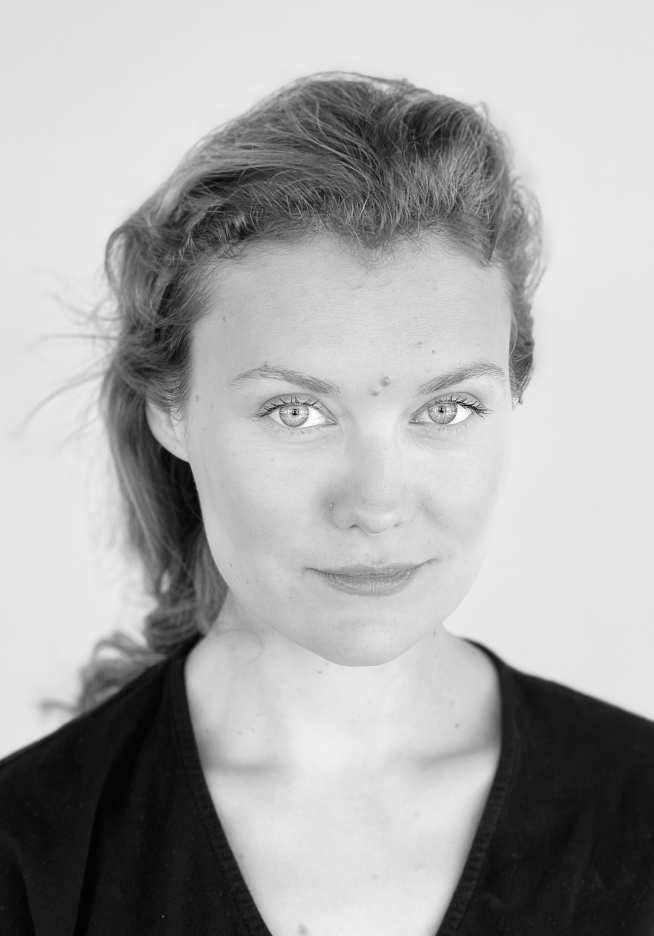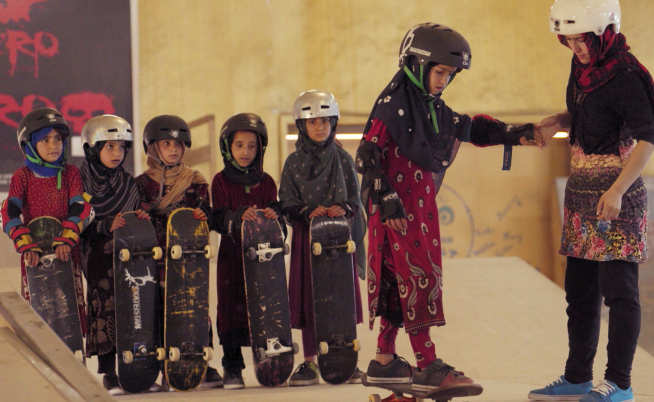
Elena Andreicheva (BSc Physics 2005 & MSci Science Communication 2006) is an award-winning Kiev-born British filmmaker. In 2020, she won the Academy Award for Best Documentary Short Subject alongside director Carol Dysinger for the 2019 documentary film "Learning to Skateboard in a Warzone (if you’re a girl)", which Elena produced. The film tells the story of young Afghan girls learning to read, write, and skateboard, in Kabul.
We caught up with her to find out more about her career, her recent Oscar win and upcoming projects, and her time at Imperial.
Why did you choose Imperial as the place to follow your interest in STEM subjects?
I wanted to go to a diverse university in a diverse city. I knew Imperial was at the forefront of both theoretical and practical research, and found that an exciting prospect, to be studying with people on the cutting edge of gaining new knowledge and understanding.
How has what you learnt at Imperial helped you in your career so far?
Imperial gave me my first break, a job as a researcher for a BBC World series about developing world health. In an industry with short contracts and low pay at the starting level, it was an invaluable boost. I had a year to learn on the job, and was paid very fairly, which stood me in good stead when I struck out as a freelancer later on.
How did you find life at Imperial as a woman?
I came straight from an all-girls’ boarding school, so to suddenly find myself on a course with 80% men was… interesting. I didn’t find it hard making friends or studying alongside them, in fact, I made some incredibly strong and lasting friendships with the guys. But I think some found me and my fellow females an oddity. Whenever there’s such a gender imbalance, you do get asked “Why are you doing this course?” – I’d just say, “Probably for the same reason as you!”
What is your fondest memory of your time here?
Some of my fondest memories were from two quite different activities – labs and musicals! Lab was always kind of chaotic, at least for me and my partner(s), but it could be experimental and you would be up against real-world imperfections, having to make sense of them. Rehearsing musicals was a way of unleashing my creative side, but it was also about the amazing camaraderie of the group, which I’ve only encountered since when filming on location. It was unrivalled: so supportive, so creative and so much fun.
What advice would you give to girls who are thinking about studying STEM, particularly at Imperial?
I think everyone has their own path, so it’s hard to say… I would like to see more of an emphasis on pairing students with mentors, perhaps other female role models, so I’d say find someone who you admire, and seek their advice and support. It can be incredibly uplifting.
Please tell us a bit about the work you’re doing now.
I’m now a documentary producer/director, making films not just about science but about most anything, though mostly on hard-hitting and hard-access topics like incarceration, the war on drugs, human trafficking, immigration and women’s rights. I work with broadcasters and production companies, and sometimes independently – it’s a varied and creative job, which I love.
What have been your career highlights and lowlights?

I have really been enjoying my work over the past seven years or so, but undoubtedly a recent highlight was winning an Oscar and a BAFTA for a film I produced! "Learning to Skateboard in a Warzone (if you’re a girl)", directed by Carol Dysinger, is a documentary about girls training to skateboard and striving for an education in Afghanistan. I’ve yet to come down from Cloud 9…
It sounds trite but I don’t dwell on lowlights – it’s all experience. But I’ve definitely had times when I wished I was doing something else, in terms of content of films, or had more control or more responsibility. I have those ups and downs within each project, to be honest, even something as amazing as "Learning to Skateboard..." can feel like a marathon at times.
What are you most proud of in your life?
I’m proud of my optimistic approach to life and work, especially when things get hard. In the film industry, you have to be able to bounce back quite quickly and without too much damage done to your ego – and I have, so far, managed to deal with that pretty well. I’m also proud of the films I have been able to bring to audiences – films like "Saving the Cybersex Girls" for the BBC, which uncovered the extent of human trafficking and exploitation for the online porn industry. The whole team were emotionally raw from the experience but it was such an important subject to shed light on, so I’m glad we put as much as we did into that film.
What are your plans for the future?
I’m working on a couple of films now, so hopefully, the future holds more of the same – more interesting films that speak to people. More specifically, I currently have a feature film in development about domestic abuse and the power of the human-animal bond.
Do you have a favourite quote or saying?
“Know thyself.”